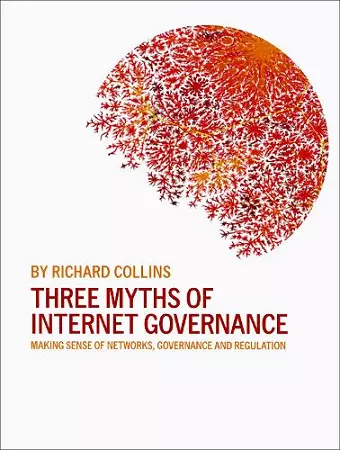Three Myths of Internet Governance
Making Sense of Networks, Governance and Regulation
Format:Paperback
Publisher:Intellect
Published:15th Feb '10
Currently unavailable, our supplier has not provided us a restock date

The Internet is a global medium that defies and sometimes even replaces established media, yet our understanding and ideas surrounding it are largely derived from Internet usage in the USA. This book draws on European and African examples to challenge three established myths about the Internet: that the market can decide; that the Internet is different to “legacy” media; and that national governance is unimportant. The study engages with and challenges established Internet policy, extending the range of topics in media studies by analysing media other than newspapers, broadcasting and cinema. Chapters confront claims that a new form of social coordination or network governance is replacing both hierarchical and market systems of governance. Collins examines the Internet's impact on established media of communication and on established regulatory orders at national and global levels. He then digs deeper into the socio-ethical norms of freedom of expression, fairness and equality and collective cultural identity in relation to the Internet. Three Myths of Internet Governance will appeal to media studies scholars and students, policy makers, and regulators.
'The real gifts of this book. There are two. There is a very detailed and accessible history and description of the entanglements of the British government with internet governance and of the impact of the internet on the British media industries. British policy-makers and students of internet governance, as well as those interested in comparative analyses, should find this quite valuable. The second is the use of important thinkers such as Max Weber, John Rawls, and Nancy Fraser to think about macro-level effects of internet governance. Efforts to understand just how it is that the internet has changed the material and social environment and how we relate to it must utilize theories native to the contemporary environment but will go the furthest if they start by seeing what key social theorists can tell us about the new environment before going on. There is too little of this kind of analysis available; in this book, Collins thus adds to the reading list of those in graduate seminars around the world who are studying the internet and society ... the discussion of British detail and the engagements with important theorists should keep this book on the shelf for a while' – Sandra Braman, New Media and Society
'Does a fine job of dragging media studies kicking and screaming into the age of ‘medium studies’, the convergence of all media onto the Internet”; “successfully marrying policy-oriented and theoretical work” ... has both immediate pertinence and longer-term substantive analysis”; “very well-informed and well-researched analysis”; “much recommended”' – Chris Marsden, The International Journal on Media Management
ISBN: 9781841502335
Dimensions: unknown
Weight: unknown
208 pages